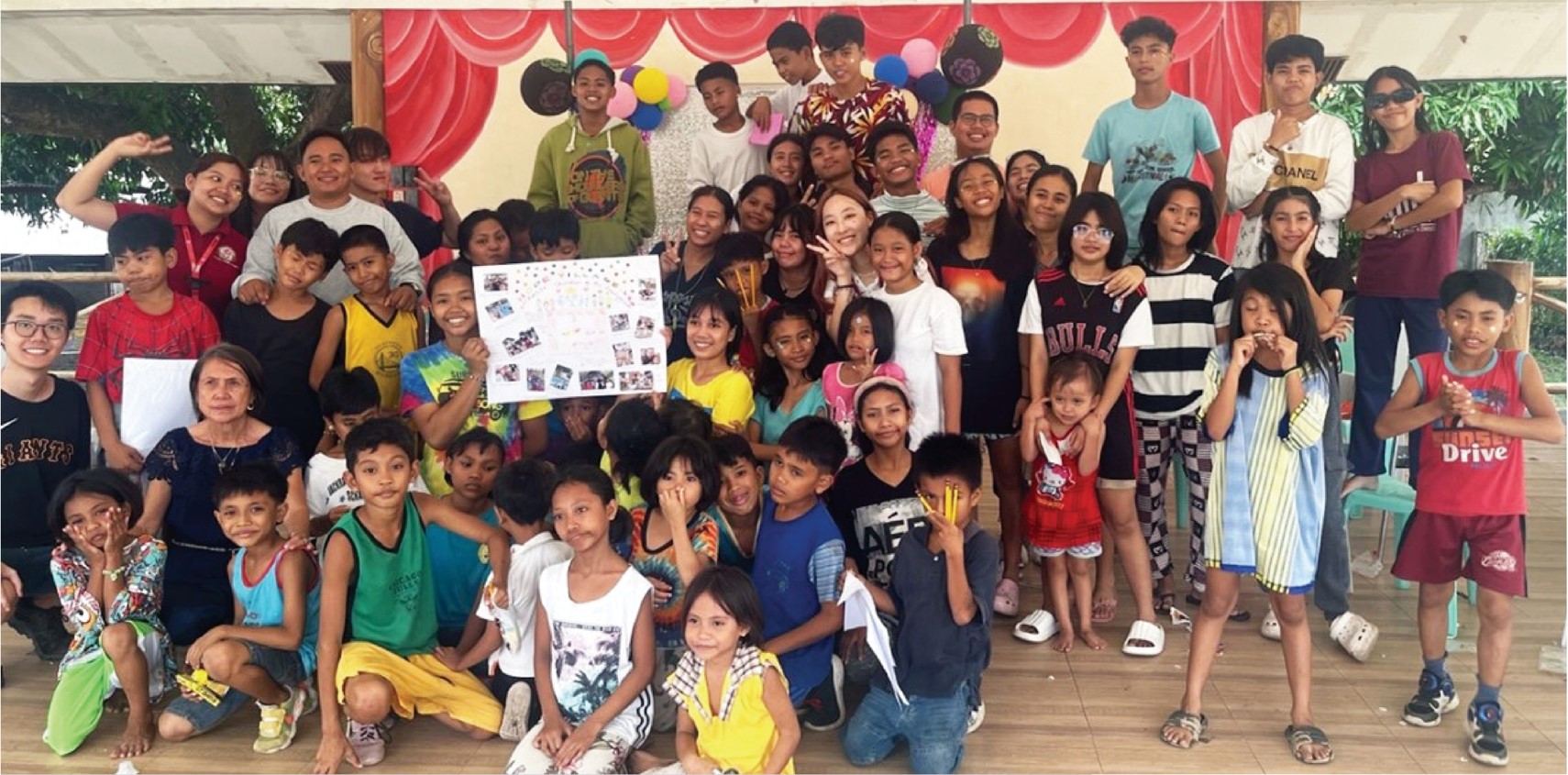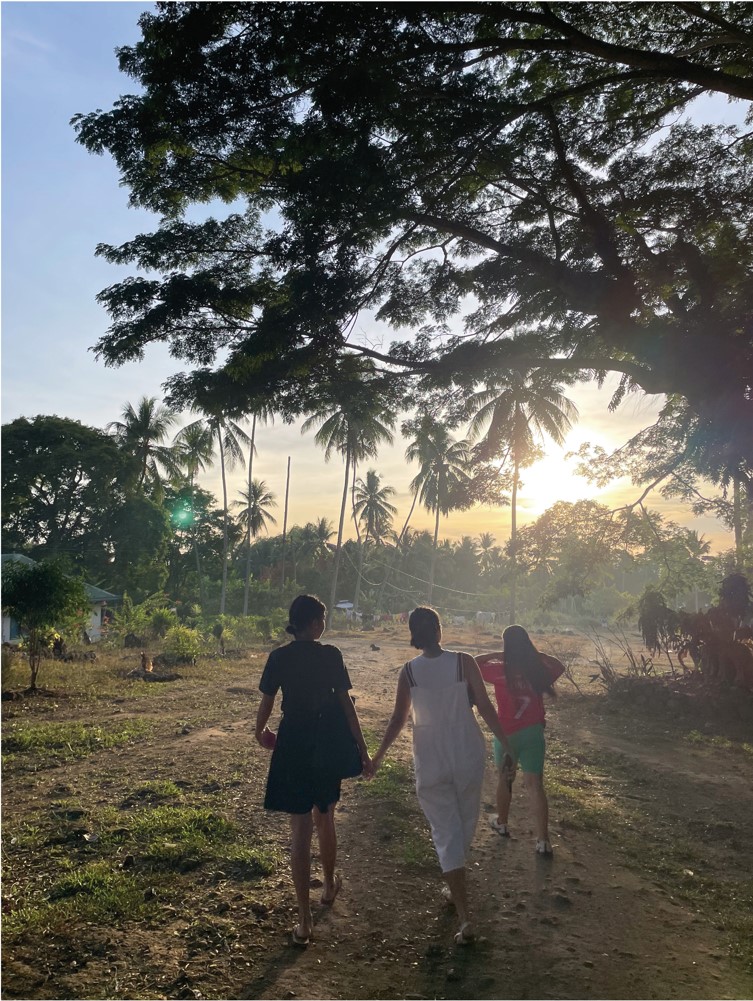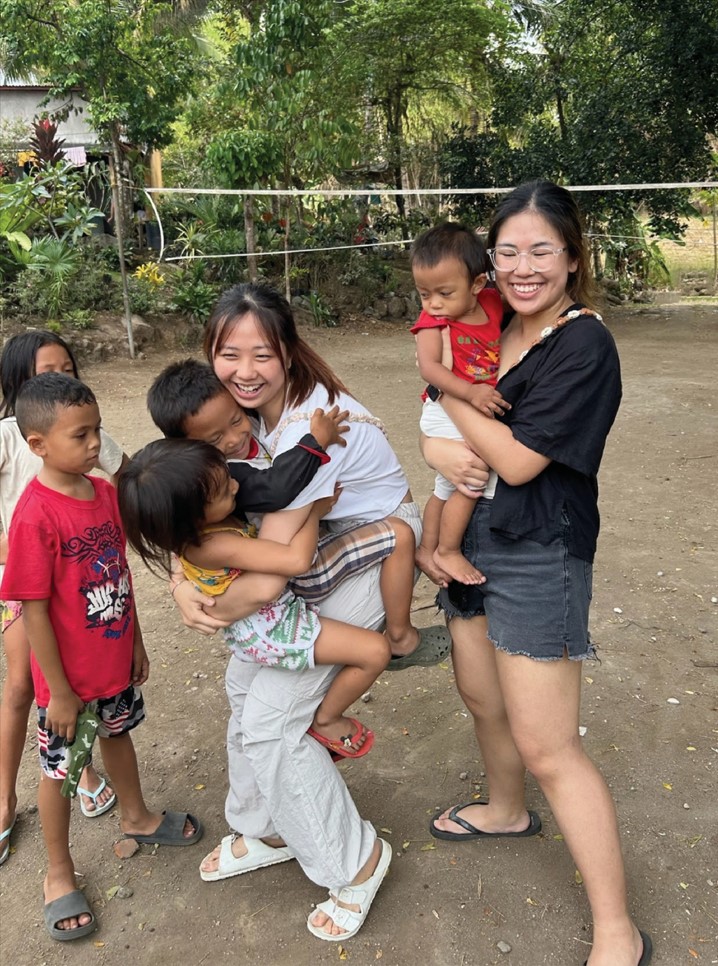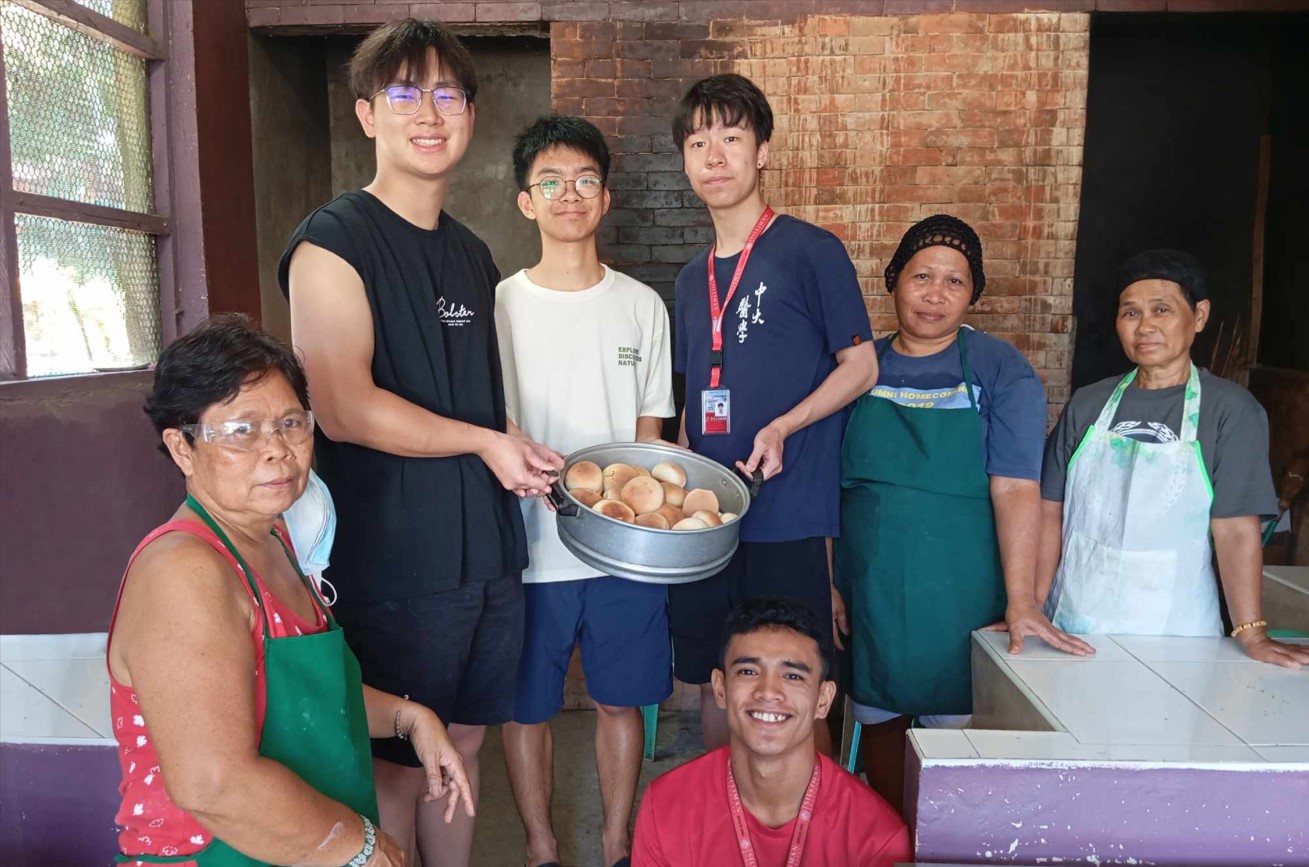

The Philippines is ......
Whenever the Philippines is mentioned, Hongkongers are reminded of domestic helpers enjoying their holiday along the bustling streets, or the Filipino fast-food fried chicken that garnered popularity since the 2000s. In the summer of 2024, we visited the tropical country for 14 days of service learning, representing Chung Chi College. We were surrounded by unfamiliar things – free-range chickens with a predictable fate ran alongside rushing motorelas, their passengers gripping the metal frame with great diligence, as the locals do for good food. Each moment spent in beautiful Dumaguete broadened our understanding of the world, as we re-evaluated our previous ideas about “the Philippines”. It is a profoundly complex community.
During the service-learning scheme, we teamed up and headed to different government agencies, non-governmental organisations and local residences throughout the city. For eight days we lived with the people we served. Immersing ourselves in the local community allowed us to gain a better understanding of Dumaguete and its social fabric.

Overcoming Trauma with Kindness
Teams assigned to serve at government agencies branched out to two locations, women headed to La Casa Esperanza, a temporary shelter for girls. The girls were always eager to see us, as were we to meet them. Each morning began with their dances and smiles, it was their way of expressing how much they enjoyed our company. Yet underneath lies the tragedy that they are victims of domestic sexual abuse. We held for them a range of activities, including language workshops and homemade movie nights, and the best part of all – a glitz and glam party, where every girl was crowned and dressed up, showcasing the loved and confident princesses they are and deserve to be. The girls kept making attempts at telling us “I love you” in Cantonese, it was not only an adorable gesture, but also a demonstration of kindness these girls show the world, despite having been through the unimaginable.

Chung Chi students becoming close buddies of the children at Gawad Kalinga village.
“Troublemakers”
It was quite a different scene where our male students served. The Dumaguete Youth Home for delinquent juveniles was home to a group of boys full of vitality and potential. The fact that they had gone astray and were confined within bars at the height of their youth was very saddening to us. Nonetheless, as days passed, we witnessed the gentle and forgiving side of this seemingly suffocating site. The boys put a lot of effort into making their own name badges using a table of art supplies, and not to mention the curiosity for science they showed while playing with solar-powered toy cars. Correctional officers would play music for the boys and let them mess around during naptime, regardless of strict schedules. Above all, the creative rendition of Filipino-Cantonese opera performed by the boys at the farewell party was more than a great crowd-pleaser, but also another display of their genuine hearts that is overlooked next to the “youth offender” label.
Connecting through Food and Music
Another group assigned to Little Children of the Philippines spent eight days with over seventy children from families or financial struggles in this non-governmental organisation. Their facilities were impressive, with vast grass fields and outdoor playgrounds, and a variety of indoor spaces serving educational, recreational and religious purposes. Aside from a pleasant first impression, we were also grateful to see the kids are now given a safe and resourceful environment. Alas, the service was not without obstacles. In addition to difficulties in catering to children with significant age differences, some kids were also reluctant to engage with unfamiliar cultures, as they are instinctively avoidant and self-protective unfortunately due to past experiences. We eased these situations with the universal language of music and food, together we danced to Cantopop hits and made treats like Tanghulu, a traditional Chinese sweet snack. Although the trickiness of sugar work coupled with working on unfamiliar wood stoves resulted in several awkward situations, we bonded through our attempts at making things together and sharing this special experience.
Finding Warmth amidst Material Poverty
One of our groups went into the local residences of Gawad Kalinga village. Our group of six stayed in a small room and was able to experience what it was like to live with no air-conditioning, water heaters, and flushing system. We had just an electric fan to make do, until around the end of our stay, when there was a water and electricity shortage that would even render the fans useless at times. However, this service site that was previously thought of as the least desirable was also packed with the most laughter. Each morning we opened our doors to children eager to spend time together. We would spend so much time just running around playing games with the kids as they navigated the rugged terrain, then cooked and shared meals with the village, before ending the day with song-filled bonfires under the starry sky. Before we left, the villagers offered gifts of flowers and handmade accessories and bade us farewell after calling each of us by our Chinese names. The tears shed during the goodbyes were a touching testament to the deep connections we formed with our service targets.
From Lecture Halls to Pigpens
We could still remember the reluctant looks our last group of three had when they first learnt of their assignment to Boloc-boloc, an impoverished agricultural village with limited water and electricity supply. The service was by no means easy, as the service target was over 800 village residents. Despite having to perform strenuous physical labour at dawn, it was apparent from their smiles that the trio no longer felt discontented after the service. Here we got our first taste of what it is like to live the agricultural lifestyle. As we went down into the fields and up coconut trees, herded cows and cleaned pigpens, we also gained a new understanding of the satisfaction that lies in honest handiwork. After work, the trio would hang out with the village teenagers, sharing our childhood games from Hong Kong and joining the village volleyball team – they even got their very own uniforms. Through companionship, we got to experience first-hand the hospitality shown by farming communities, and how they live so diligently and authentically.

Chung Chi students experienced rural life while serving at Boloc-boloc.
To Our Fellow Student Guides
This trip to the Philippines was such an experience abundant in growth, life lessons and simple pleasures, that a brief article like this could not do it justice. Even so, it is impossible not to dedicate this whole section to our buddies from Silliman University, who accompanied us from the moment we landed up until our airport departure. They were not only translators and guides who partnered with us in organising services, but also companions with whom we shared every meal, every night, and all the ups-and-downs with. Throughout the fourteen-day service, they generously showed us the beauty of Dumaguete, as we learnt about each other’s cultures along the way. Together we had simply a great time outside service hours. We truly appreciate that they showed us the Filipino passion, hospitality and joviality to its fullest.
Service-Learning is…?
“Serve to Learn, Learn to Serve” is the slogan Silliman University eloquently phrased to sum up the core philosophy of this trip: as we learn to put ourselves aside and into the shoes of others and become devoted to identifying even the smallest gears of change, we soon discover a refreshing perspective with which we examine ourselves and reshape our perception of the world – one that is rooted in kindness and hope, characterised by thoughtfulness and innovation.
Student Reporter CHUNG Wan Man
Student editor LEE Yin Lok